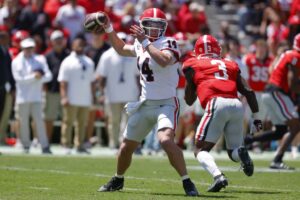Penn Entertainment’s annual shareholder meeting saw two of three HG Vora candidates elected to the company’s board, but that is not the end of what is a fight for Penn’s survival in the mobile sports betting industry.
Candidates Approved
HG Vora Capital Management, a New York-headquartered hedge fund and a large Penn shareholder, saw two of its three candidates approved during Penn Entertainment’s annual shareholder meeting last week. As the company flounders in the fiercely competitive online sports betting industry via its ESPN Bet platform, Penn shareholders elected Johnny Hartnett and Carlos Ruisanchez to Penn’s board of directors.
However, HG Vora’s third candidate, former Penn executive William Clifford, was not accepted and had been opposed by the company since his candidacy was announced. The results are unofficial but signal a sea change in the company’s direction.
“The Board remains committed to the close oversight of our differentiated omni-channel strategy and to delivering sustainable long-term value,” read the board’s statement. “We recognize there is more work to be done, and we are intently focused on driving profitability in our interactive segment and growth across the business as we continue strengthening the company’s balance sheet and liquidity position, deleveraging, and accelerating capital return to shareholders.”
Infighting Among Penn’s Direction
Penn Entertainment had been exclusively a land-based casino and hospitality firm, but that changed when they decided to shift to the online sports betting realm with the purchase of the Barstool Sports media empire, which was ultimately designed to launch Barstool Sportsbook.
However, the ink was barely dry on the $650 million purchase when Penn CEO Jay Snowden spied another, more visible opportunity in striking a deal with ESPN to launch ESPN Bet. It was a 10-year, $2 billion deal that has hardly moved the needle for the company, where estimates range; they control approximately 3% of the national market, little more than when they launched Barstool Sports.
PR Storm
What makes this even more troubling is that ESPN demanded Penn dissolve Barstool Sportsbook and divest itself of the Barstool Sports media division due to the incongruity of the bro-cultured business unit contrasting with Disney’s ESPN family-friendly brand.
Penn then sold Barstool Sports back to its founder, Dave Portnoy, for $1 and the promise Penn would receive 50% of any future sale. Portnoy has vowed never to sell.
This has caused tumult among investors in Penn Entertainment, and one of the most vocal opponents, HG Vora, which owns approximately 4.8% of Penn common stock, pledged to nominate three of its own candidates. Although two were voted in, Penn vehemently objected to a third, William Clifford, and he was the only one of the three not chosen.
However, a lawsuit remains to be heard next month after HG Vora accused Penn Entertainment of violating federal securities laws and forsaking its fiduciary duties upon reducing the number of board seats up for election from three to two ahead of its 2025 annual shareholders meeting.













